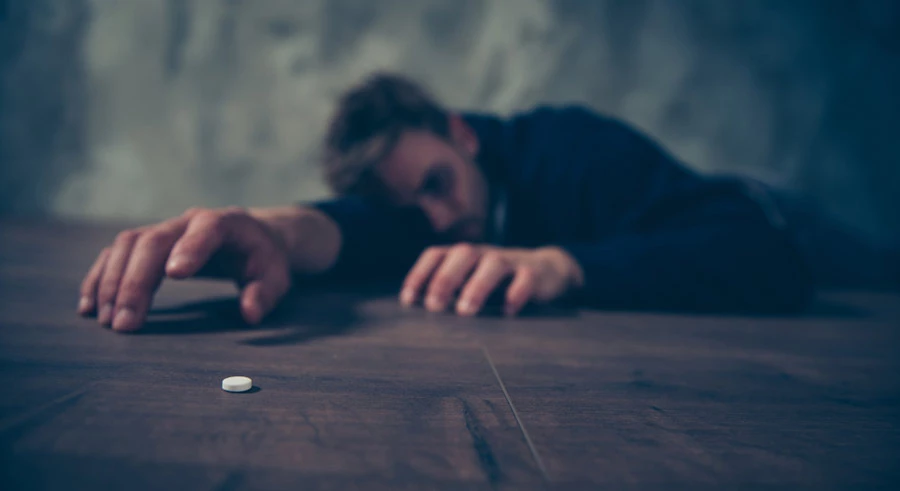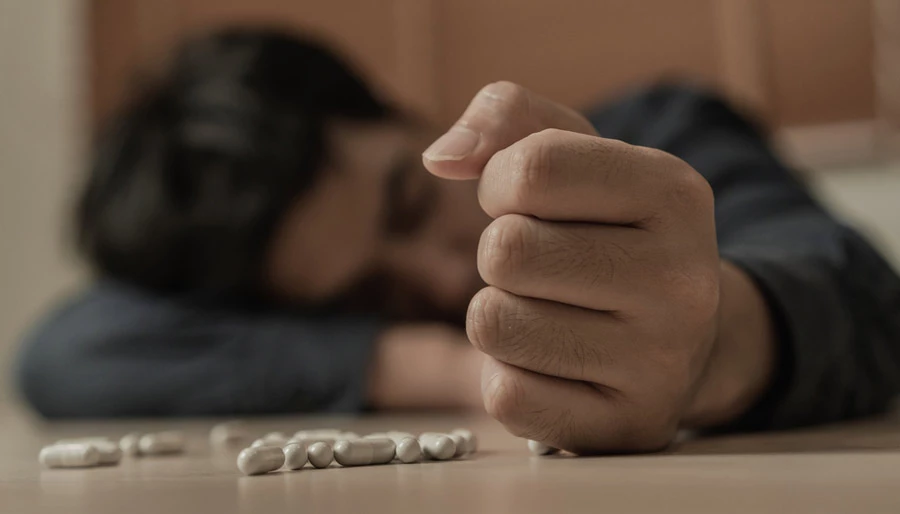Understanding the Time Needed for Effective Fentanyl Detox
In recent memory of illegal drugs, and even in the history of addiction medicine, there are few drugs that have caused as much damage as fentanyl. Anybody who has experience with substance abuse will tell you just how destructive it is compared to other opioids.
In my personal experience, nothing scares me more than fentanyl. I used heroin for a number of years before making the switch to fentanyl, and it nearly killed me on multiple occasions. I wanted to die during withdrawals so many times I lost count and had pretty much given up hope. But I was able to find support and finally put together clean time, including this very day. And you can too.
South Shores Detox and Recovery had an amazing plan in place for me, and it made the fentanyl withdrawal symptoms much more manageable. The symptoms of fentanyl withdrawal are intense and just as bad as any other type of withdrawal. Opioid withdrawal is a brutal struggle that most often can only be overcome through a professional medical detox and the support it offers.
Keep reading to learn more about how long does fentanyl withdrawal last, as well as more about my story and how I finally was able to get effective help at South Shores!
The Hurdles of Withdrawal Symptoms
My fentanyl use and withdrawal symptoms were as uncomfortable as any sickness I have ever experienced. When you are addicted to a drug like fentanyl, the withdrawal symptoms would make even the strongest person break. Many fentanyl addicts don’t make it through withdrawal without going right back to their addiction. It’s that painful.
When you enter substance abuse treatment, you have to expect it to be uncomfortable. Drug abuse is a dangerous game, and coming out of it is a mental struggle. The fentanyl addiction treatment programs that I received at South Shores saved my life and gave me a second chance. You too can get that second chance. Keep reading to find out how you can do it.
Falling Headfirst Into An Opioid Use Disorder
When I reached the point where I began using fentanyl, my life was already in shambles. I was homeless and desperate. There wasn’t anything anyone could tell me that would make me think twice about my substance abuse. I was in it for the long haul. I had used drugs for so long that I didn’t think I would ever get close to sobriety.
Prescription and synthetic opioids have become an epidemic in the United States, for many different reasons. Opioids are generally prescribed for chronic pain and other physical injuries. For a long period of time in this country, prescription opioids were readily available and easy to attain. At one time, it was easier for me to find opioids than marijuana.
Becoming Physically Dependent
It doesn’t take long to become physically dependent on opioids. Eventually, once your tolerance builds, you need more of the drug to get high. This is when many opioid addicts turn to cheaper drugs like heroin and fentanyl. When I made the switch over to fentanyl, my addiction to a synthetic opioid made the symptoms even more drastic.
Being physically addicted to fentanyl abuse or to any drug will make you do things you never thought you’d do. You can overdose and almost die, and then use the drug immediately after that. It’s that powerful. Because fentanyl withdrawal symptoms are so uncomfortable, you will do anything to avoid them.
Fentanyl Withdrawal Symptoms and My Experience
Fentanyl withdrawal symptoms usually occur within several hours of your last dose. The half life of Fentanyl can take 3 to 12 hours to leave your system. Common fentanyl withdrawal symptoms include nausea, diarrhea and vomiting, physical discomfort, insomnia, anxiety, and increased body temperature.
Fentanyl detox and going through withdrawal is usually not fatal, but it sure feels like it when you are in the middle of it.
The fentanyl withdrawal timeline typically lasts two to three days. It’s two to three days of pure hell, and if you get through it, the idea of relapsing and having to go through it again is terrifying. Because the pull of opioid use disorder is so strong, not even the fear of fentanyl overdose and withdrawal will keep you from going back.
The Most Persistent Withdrawal Symptoms
Being a fentanyl addict is unpredictable. You never know how often you will be able to get it, so often you are in a constant loop of symptoms of fentanyl withdrawal. This means that you are always minutes or hours away from feeling like death warmed over. Fentanyl withdrawal is always right there, waiting to strike.
When you are dealing with withdrawal symptoms on a regular basis, your quality of life is next to nothing. You get to the point where you are only using the drug to not feel sick. After a certain point, you don’t even get high anymore, you just try to push back the timeline for withdrawals a little bit more.
For me, it felt like I was stealing and paying money just to avoid feeling the worst of my severe withdrawal symptoms and to keep the dope sickness away for a few more hours. What a life.
Surviving Opioid Withdrawal
When I got through my initial opioid addiction withdrawal symptoms at South Shores, I never wanted to feel that pain again. It was enough for me to take my recovery seriously and work through my issues. I suffered through several withdrawal symptoms and made up my mind that I would never go through that again.
There aren’t many opioid addicts that don’t deal with unpleasant withdrawal symptoms. If you’ve never been through it, it’s hard to describe the agony.
The withdrawal management and medication-assisted treatment that I received at South Shores was as professional as I’ve ever experienced. The people who have to help addicts go through this process are truly angels in disguise. You have to have an extreme amount of patience and compassion to help someone through that kind of thing.
Post Acute Withdrawal Syndrome
For many going through the recovery process, the withdrawal symptoms don’t end after the physical withdrawal symptoms. The psychological symptoms are just as intense as the physical symptoms. When you are newly sober, you are literally rewiring your brain on how to function normally without the influence of drugs and/or alcohol.
Being newly sober is a very sensitive time. This acute phase is when a lot of people unfortunately relapse. It’s extremely difficult to deal with life’s everyday challenges without the drugs. You are so used to dulling your feelings and emotions with the drugs, and every emotion or decision is overwhelming without them.
Withstanding The Withdrawal Period
It takes a tremendous amount of mental toughness to last through that initial period of opioid withdrawal symptoms. You have no clue where to go from there. You aren’t sure of yourself. It’s hard to trust that you will do the right thing because you’ve been doing the wrong things for so long.
A person’s risk of falling back into their old ways is the strongest at this point, and for me at least, it felt like a literal pull at times, especially when I’d see an old dealer driving by, or someone I used to get high with nodding out on a bench waiting for the bus.
Support groups and individual therapy are the only things that were able to pull me through. Misusing fentanyl for as long as I did, I needed a lot of peer support. It wasn’t until I was clean for about six months before I finally started to feel normal again. I still have cravings occasionally, but they are much easier to deal with these days.
Finding The Right Treatment Programs
One treatment program usually doesn’t work for everybody. There is so much to unpack when it comes to your own substance use disorders and abuse. We often engage in drug addiction because of past trauma or some form of insecurity. You can’t stay sober if you don’t find a way to talk about these issues and address them head-on.
I focus as much as possible on my mental health. If I’m having an off day, or I fall into a negative mindset, I will try to hold myself accountable. I try not to finger-point. I don’t want to blame the rest of the world for my problems.
My addiction is not my fault, but it is now my responsibility. I don’t take my sobriety and mental health for granted like I used to.
Holding Yourself Accountable for Recovery
Every aspect of your health plays a role in your sobriety. If you’re in good physical health, that will have a positive effect on your mental and emotional well-being. Your body and mind are connected, and it’s difficult for them not to affect each other. You will see a huge difference in your attitude when you focus on them both simultaneously.
The easiest way to stay clean is to simply talk things out when you are having a weak moment. This is why support groups are so beneficial. There are going to be times when you feel triggered, and there will be times when you feel cravings out of nowhere. You can’t beat up on yourself when you are in these moments. You let them pass and then keep moving forward.
Get Support for Fentanyl Recovery at South Shores
South Shores Detox and Recovery helped me get my life back, and I don’t take that lightly. I want to give this gift to as many people as I possibly can. A big part of recovery is helping others. It’s my favorite thing to do, and a big reason why I am clean today, as well as why I put all this onto the ‘page’ for you to read.
If I can recover, you (or your loved one) can too. It’s that simple. All it takes is a call to ask for help.
Reach out today to South Shores and get options with their programs, I won’t say my life is perfect, but it’s one call I will never regret making!




